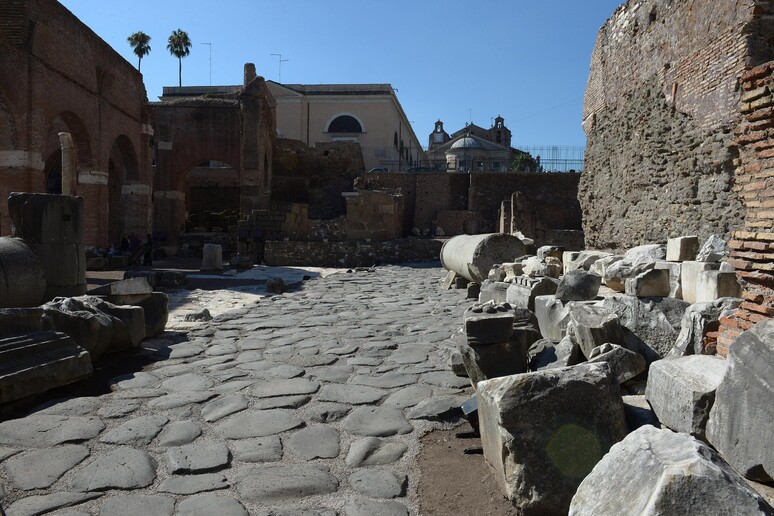Events marking the bimillennium of the death of Rome's first emperor, Augustus, continued on Tuesday with the reopening of the ancient Vicus Iugarius, or street of the Yoke-makers, in the Roman forum after restoration lasting four years.
Visitors can now follow the street running along the shoulder of the Capitoline hill to the Basilica Julia that once represented part of the original trade route to the river Tiber.
The reopening of the Vicus Iugarius was one of a series of initiatives by Rome's cultural and archaeological authorities to commemorate the 2,000th anniversary of the death of Augustus, including the reopening of part of the ancient Roman Baths of Diocletian following a 6.5-million-euro restoration project lasting six years.
Visitors can now admire the natatio, or open-air swimming pool, at the heart of Rome's most imposting bath complex and the small cloister of the late 16th-century Carthusian charterhouse of Santa Maria degli Angeli, which was built on its ruins.
ALL RIGHTS RESERVED © Copyright ANSA











